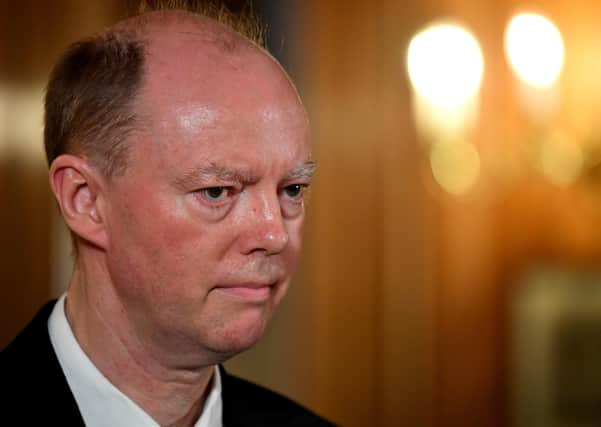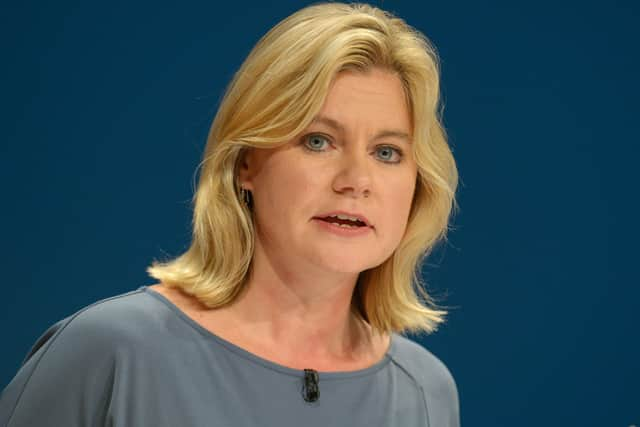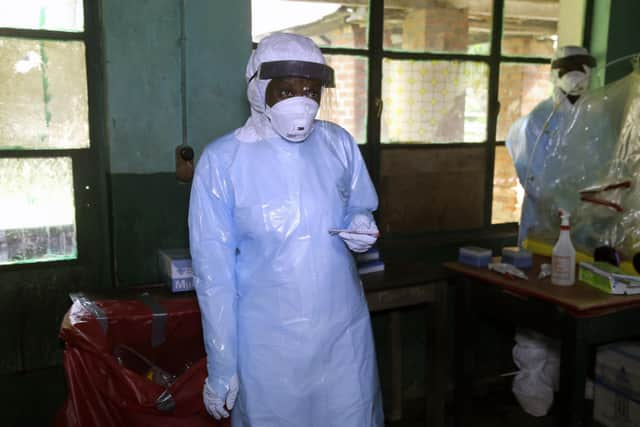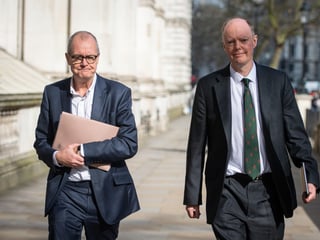Coronavirus and what Chris Whitty learned from Ebola – Justine Greening


In 2015 I was in Sierra Leone talking to a brave local Red Cross volunteer part of a team collecting the bodies of people who had died of Ebola. The virus was highly contagious and highly deadly.
Yet, as he pointed out, unless people were prepared to join the national effort, there was no way Ebola would ever be brought back under control.
Advertisement
Hide AdAdvertisement
Hide Ad

As Secretary of State at the Department for International Development at the time, it was a privilege to help co-ordinate that effort, alongside the many NHS, DfID and Army personnel who went out for months, working round the clock helping that country.
I worked alongside our then DfID chief scientific officer Chris Whitty, who drew not only on his own decades of expertise but also from the wider scientific community he was part of.
Intelligent, methodical and personable, he helped me steer our COBR meetings as we brought a wider Cabinet on board with our strategy to beat Ebola.
As the Chief Medical Officer now giving his scientific advice to shape a coronavirus strategy, Chris Whitty faces an even tougher challenge combatting a virus that is not only spreading rapidly but on our own shores.
Advertisement
Hide AdAdvertisement
Hide Ad

I know from our time working together that Chris will work tirelessly to provide the best possible advice.
It took a national effort to overcome Ebola in Sierra Leone and it will take a national effort on coronavirus in the UK.
Over the coming months, those working in our NHS and other public services, and many of our businesses, will be doing their level best to keep the show on the road as we fight this terrible virus.
Not just the doctors and nurses on the front line, placing themselves at risk whilst caring for coronavirus sufferers, but all those other people we rely on in our day to day lives – the people driving the lorries with the food our supermarkets need, the people keeping our hospitals clean, those keeping our utilities up and running and many more.
Advertisement
Hide AdAdvertisement
Hide AdMany companies are up against the wall as they work out how to survive the next few months. Government will need to act fast in bringing forward more support measures businesses will need to survive.
If companies can retain employees, it’s the best way they can keep paying their household bills. If parts of our economy needlessly collapse because of coronavirus, it makes eventually recovering from this crisis that much harder.
In spite of everything, amongst those businesses who have worked out how they are going to get through, many are also now going above and beyond that, working out how they are going to help.
Earlier this week, I launched the C19businesspledge.org website. It was inspired by the companies who got in touch with me after I did an interview in which I said I knew business would want to play a wider role in helping our national effort on coronavirus.
Advertisement
Hide AdAdvertisement
Hide AdOur website shares all the great ideas and best practice that businesses have already come up with to support their employees, vulnerable customers and communities.
It’s not just about sharing the positive news. It means that as more companies get their coronavirus survival plans in place, businesses don’t have to reinvent the wheel. Instead they can find out what the rest of the business community is doing more widely to be a part of the wider efforts.
We already have Yorkshire businesses like Sewell Group involved, alongside universities including University of Bradford and York St John.
After just a few days, we’ve got the support of national companies like BP, Standard Life Aberdeen, TSB and the National Grid, collectively employing over 250,000 people.
Advertisement
Hide AdAdvertisement
Hide AdRight now, it’s a time of uncertainty, and real concern for many. We’re yet to get into the worst days of this crisis but it doesn’t mean we can’t take action to help our community.
The advice that we’re all getting on washing our hands and social distancing is important to follow. Not just for yourself but for keeping everyone else safe.
I’m stuck in London, the epicentre of the coronavirus crisis, which means for now, I can’t responsibly travel to Rotherham to be with the rest of my family.
It’s hard to accept. But taking care of ourselves and behaving responsibly with others is the best way to bend the infection curve lower.
Advertisement
Hide AdAdvertisement
Hide AdIn reality, everyone – people, communities and business – can play their part. Even a small helping hand can make a big difference for someone needing support.
Through volunteering in our local community, whether getting shopping for people less able to get out or simply ringing to check on those more vulnerable, we can increase the overall support we’re providing to one another.
As an Italian citizen said, talking about the music they play to one another across balconies as their own country is in lockdown, “it’s about being ‘together together’”. That’s the key to success. United communities make a United Kingdom. That’s how we’ll beat coronavirus.
Justine Greening is a former International Development Secretary. She was born in Rotherham.
